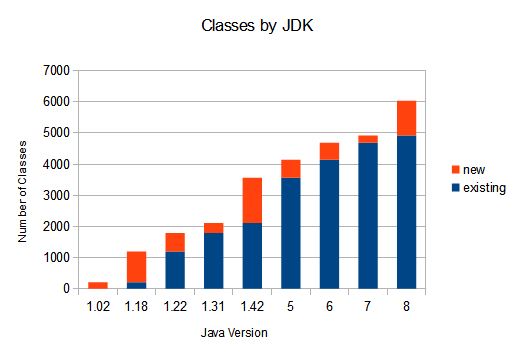C089 - or
Christoph Neuroth - was the Code of Conduct "officer" at SoCraTes Belgium. Obviously I asked him to answer my questions. Here is what he wrote. If you want to know more about Chris, read
his blog or find him on
Twitter.
 Christoph, how did you become a software professional?
Christoph, how did you become a software professional?
It started when I found a tutorial on programming in BASIC as a kid. I really liked video games and writing stories, so I wrote text adventure games with that. I was hooked and started saving my money to buy books on programming and educating myself. At the same time I had tons of problems at school. I was later diagnosed with ADHD but this was way before that became a well-known "condition", so they just tried to get rid of me and at least one teacher told me I would never achieve anything. But I couldn't care less: I sat through it, went home, told my parents there was no homework and wrote code. I cannot really recall wanting any other job since then. I cheated my way through school to get some degree that allowed me to go to university with the least effort possible and went on to study computer science, which I believed was the road to becoming a professional software developer. That was a bit naive though and I did not learn a lot of useful things about software development there and continued to self-educate instead. It was a great time for personal development though. I also worked part-time programming jobs to get more experience and after graduating went on to become a full-time developer. The really important thing however was that by chance I got to meet people from the craftsmanship community. I had read books like Clean Code and understood about the importance of testing already, but learning from all these people and becoming an aspiring craftsworker myself was so important.
My most recent big success was going independent last year. I currently work as a developer in teams and lead by example when it comes to better ways to build software, run training sessions on testing and design and advise technical management on what they can do to help their developers get better. Going freelance allowed me to level up my career in many ways that were not possible in a traditional employer/employee model. But more important to me are the small, everyday successes: When a developer tells me she learned something useful from me or that I helped her team overcome a problem. That is what gives me the energy to pursue excellence and keep going.
And you already know I also organise
SoCraTes Conference, an un-conference for all people that are passionate about well-crafted code.
I know that you are vegetarian and noticed you sharing content about diversity and harassment. Why does that matter to you?
Well, vegetarianism (or my as of now part-time veganism) is the much smaller thing for me really. After moving out of my parents place I had to care for my own food, so I had a reason to think about what I eat. I gradually and unconsciously removed meat from my diet. At some point I noticed "oh, I am a vegetarian", and went on with my life. It was later that I began to think more about the ethics behind that and while that is interesting, I think it is much more pressing to talk about diversity and harassment in our industry. Many people that are actually affected by this have written about this question and I encourage everyone to listen to them, but as you specifically asked why it matters to me, here goes:
Being a software developer is a great job. It has given me the opportunity to do something I enjoy for work, get a very good salary plus freedoms people in other professions can only dream of on top (right now I am working from the beach in Tunisia to escape the cold German winter). But many people with more talent than I have need to work much harder to enter this profession, and when they make it, they end up in a hostile work environment. Here's the problem with this industry: Way too many of us are able bodied, cis, straight, white men in their twenties or thirties - just like I am - and the moment you do not fit in, you are likely to be discriminated and harassed in this industry.
This initially is not obvious because it is so prevalent in the whole society, and sold to us as normal. But once you realise it, it cannot be unseen: When I recently recommended a junior developer to check out some videos by Sandi Metz and ended the sentence with "she taught me a lot", he uttered a "she?" that sounded not just surprised, but rather disdainful. I have seen whole offices with a culture where using "gay" as a synonym for "bad" did not even make people raise an eyebrow. I have seen rape jokes posted on the wall of a 100% male development teams' office. All those things and much more, every day. I do not want to work like this, and no one should have to.
Now most people are not that bad - they do not want this, and I am sure they often feel uncomfortable because of this. But they may be afraid to speak up, so it is important that those who have really nothing to lose do. So, because I enjoy the privilege of being in this industry, not having to fear and having my voice heard, it is my responsibility to say something. That is why it matters to me. And we will all benefit from this: We will get to work with many new talented people that we excluded before and can together raise the bar of professional software development, which is what craftsmanship is all about. Sure, we may lose some too: those that show toxic behaviour and do not want to change - but are we really going to miss them? I do not think so.
 What other topics are you concerned about and what do you do regarding them?
What other topics are you concerned about and what do you do regarding them?
I am concerned about many things really, but of course I cannot act on all of them. The other really big issue that has been interesting to me the last years has been how we treat refugees that come to Germany. As to what I actually do, I do not want to go into details but rather look at that question from a different angle, one that is related to craftsmanship too: Probably not enough.
I am often concerned about not doing more work like that; and instead go to a client’s office where I make money building things that do not really improve society. And in our community, we put a lot of focus on lifelong learning, and then I do extra work like organising SoCraTes. I often wonder if my priorities are right. For my career, definitely; but will I be satisfied with this when I look back on my life one day? I am not so sure about that.
Outside your personal topics discussed till now, what do you consider the biggest challenges of our times?
Finding a way to thrive on another planet before we completely ruined this one.
When I talk to people, many express concern about meat mass production or pollution, but almost nobody really acts on it. What could we do to engage in the topics? For example, did you take part in public protests, donate money to NGOs or sign petitions?
I did all of that, at different times and for different things, yes. All of these things can be helpful, it is just a matter of choosing the right tool for the right problem. Regarding things like factory farming and pollution, I think the most effective protest happens through consumption, or rather the lack thereof: People do not mass produce animals because it is such a fun thing to do, they do it because it is a profitable business. So in the system we live in that is the way to end factory farming: Take away the profits.
However, that is fixing a symptom, not the root cause: Greedy people will exploit something or someone to make a bigger profit. When it is no longer factory farming, dirty engines or selling tanks to Saudi-Arabia, they will find something different. I do not really have a solution to that. While we have made progress in technology, when it comes to being respectful to each other and nature, we haven't really made that much progress. It is just very frustrating really.
I would like to see more impact on these important topics of my regular work. I would like to keep doing what I can do best and earn my salary as usual, just working on "the right things". Do you think that is possible in general?
Do we really need that "usual" salary though? Many of us could probably live on so much less! Last year, I moved out of my big flat, sold or gave away nearly all the stuff I had and since then I have lived a much less cluttered and happier life than before. Today, I could easily work for less money or just work less. But I remember the time when a person I trusted stole a good amount of money from me, I lived with friends for a few months and then spent years paying back loans. That is the way capitalism takes us as hostages: Every time I get to decide "do I want to take that contract, or spend three months doing voluntary work for refugees instead", this situation will be in the back of my head.
The other thing, and I guess that is true for you as well, is that I actually enjoy what I do for a living. Finding a way to contribute more to society with the skills I have would be wonderful. I think it would very well be possible, but right now I feel it is very hard to find. I cannot really think of software projects that have positive social impact and are backed by organisations that can pay market rate for their development.
There are many decisions we take before and during a project. Which choices do you think are relevant?
The
Volkswagen scandal is an extreme example. While I have no idea if developers can be hold accountable for the fraud here from a legal point of view, it is very clear to me from a moral standpoint: It was their responsibility to refuse this work and blow the whistle. This is not something I would be a part of. But there are many small things everyone of us can do every day to improve things. Lena Reinhard recently spoke on that in her
Talk About Everything that goes into more detail than Martin Fowler did in the talk
Not Just Code Monkeys. She says it so much better than I could, so I will leave the stage to her:
Talk About Everything.
How do you think about selecting industry, customer and project based on your values and social responsibility?
That has changed a lot for me. I chose my first job based on technology and so I ended in eCommerce by chance. Now that is an industry I am not very passionate about. Useful as it is, society has bigger problems to solve than improving the convenience of buying stuff. But at least it does not seem to be bad in itself.
As I can get to chose companies more frequently as a freelancer than as a permanent employee, this is now much more relevant to me. I will certainly not only base that decision on the money I can make. As I said before I would really love to work for a company that builds a product that actually has positive social impact, though I am not sure what that would be really. And after what I said about harassment before, it won't surprise you that I would prefer to work for a company where everyone cares about those things and is committed to build better work environments. I would probably even stay if I found a company that does both. But industry-wise? I am not sure, I cannot see any industry that is just "good". That is not how industries work I guess.
Do you have problems with any industries? What about the meat industry or weapon manufacturing?
I also do not think there are many industries that are inherently evil, so it would mostly be a case-by-case decision. Having a bank account is pretty useful compared to carrying around all your money, yet I would probably decline most banking-related projects - because I believe they are not about solving people's problems, but only about making rich folks richer.

The weapons industry would surely be a no-go. A bit more surprising may be advertising: I view the advertising industry as somewhere between completely useless and outright evil. It is a whole industry that creates absolutely zero value for society. And it is not even that advertising is a mirror of a fucked up society with all it is problems - sexist advertisement only exists because there is a sexist society that responds to it. Capitalist consumerism only works if people stay unhappy, and advertisement is the primary weapon to create that unhappiness. You may think "weapon" is a strong word to use for that. Ironically, in Germany there is a campaign by the ad industry for itself (meta ads!) that says exactly that: "outdoor advertising: hits everyone". You hit people with your hands, weapons - or billboards. It is a very subtle war against freedom, and there is no opt-out of advertising. Which leads back to that thing I said before about being a hostage of capitalism: Ads are used to sell people stuff they do not need, which forces them to keep working their jobs even if they have ethical or moral issues with what they do for a living.
This brings me to another problem I have with my fellow humans: Our imagination seems so incredibly limited. When I say "let's ban ads", people always react with that old "that is not possible". Yet the city of Sao Paolo did exactly that with outdoor advertising in 2006, and the world kept turning even there. Why not try more of that.
Did you ever reject a customer or an actual project, that would bring you money based on your values?
Until now, that never happened. I am certain I would reject offers based on that if I had good reason, but being able to just walk away is also just privilege I have.
But how about the other way around? Maybe many companies do not even want to have people with ethical standards around, because their whole culture and business model is based on the absence of that? We are having this interview because in my twitter stream I mix things about my profession with my private views and I proposed a few sessions on diversity at SoCraTes conferences. I do the same offline: When I work at a client, I speak up against the kind of discrimination I described before. I usually speak with offenders in private the first time and then do it in front of their peers if the person person continues this behaviour. I think that in any group where someone shows such behaviour, there are people who feel this is not right, but do not speak up. So far I have never received any backlash because of this, but if that ever happened and the group decides I am the problem, I am more than prepared to get out of there, quickly. If I did not do it, it would make me an offender. I am in a luxury position of being able to speak up without fearing for my personal safety. If I did not speak up, it would make me an accomplice. So maybe some people will not hire me because of all this. I think I can live with that. I will go somewhere else. If society one day is so fucked up that I cannot get a job based on that, I will rather be poor than complicit.
On the other hand, what would be industries, customers and projects that you consider having a positive impact on society?
Maybe I am being pessimistic or just cannot see it yet, but I do not see how creating a software will improve things really. If anything, nearly all software is dual-use. Martin Fowler used the example of the developer that wrote printer drivers and how that is useful when you are building a house. While that is certainly true, the same printer driver can also be used to print the verdict that sentences a person to be killed by a fascist regime. Building software is something I enjoy and that pays my rent, there are many things wrong in how we do it and we can improve on that - but I do not see a way to make it an inherently good thing. It will be as good or bad as the people who write and use it. I really hope I am wrong with that though and will find projects to work on that are fulfilling on that level too.
Thank you Chris
Thank you
 The double underscore marks the place where the code has to be changed to make it work and pass the test. These tests are very simple and there is not much explanation. Maybe this is the connection to the Zen Koans: The Language Koans are a list of exercises to work through, to master the language (i.e. reach enlightenment). Each one is very small (i.e. a sentence) but does not make much sense on its own. The exercises are sorted by increasing difficulty (i.e. the path to walk). Following Jim's example, Koans are usually based on unit tests which you make succeed. Language Koans are available for many programming languages, see a list of Koans by Laura Diane Hamilton.
The double underscore marks the place where the code has to be changed to make it work and pass the test. These tests are very simple and there is not much explanation. Maybe this is the connection to the Zen Koans: The Language Koans are a list of exercises to work through, to master the language (i.e. reach enlightenment). Each one is very small (i.e. a sentence) but does not make much sense on its own. The exercises are sorted by increasing difficulty (i.e. the path to walk). Following Jim's example, Koans are usually based on unit tests which you make succeed. Language Koans are available for many programming languages, see a list of Koans by Laura Diane Hamilton.












